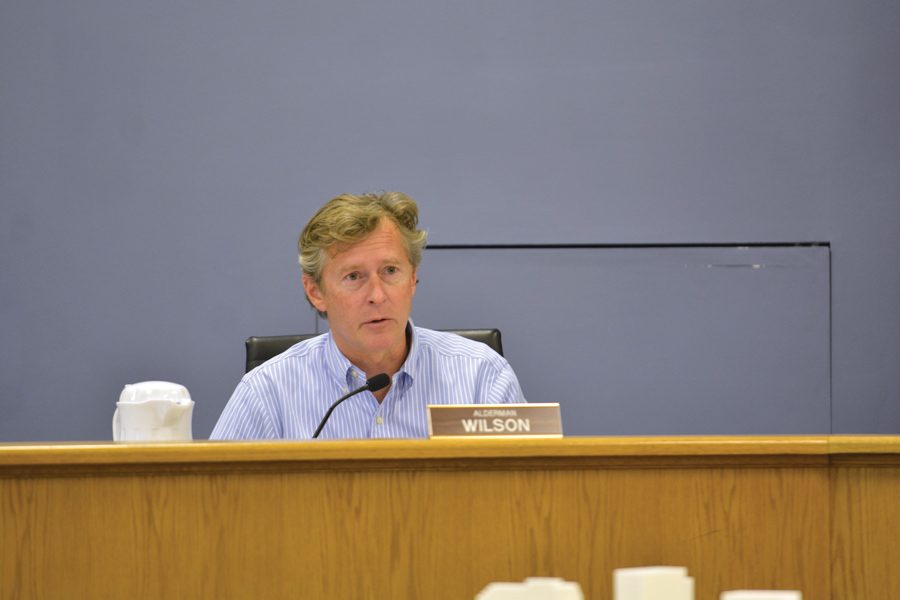Aldermen refer rental space laws to Planning and Development Committee
Daily file photo by Rachel Kupfer
Ald. Donald Wilson (4th) speaks at the Oct. 9 City Council meeting. Wilson said at Monday’s special meeting that rules regulating capacity and the renting of accessory dwelling units prevent the creation of a “safe space.”
October 31, 2017
Aldermen referred a pair of controversial city laws regulating rental spaces to be revisited by the Planning and Development Committee at a special City Council meeting Monday.
After reviewing a report prepared by city staff on Evanston’s affordable housing challenges and possible solutions, aldermen debated the merits of local laws that govern how many people can occupy a living space and to whom certain spaces can be rented.
A current city ordinance states that more than three unrelated people cannot live together in a single “dwelling unit” unless the landlord has a valid lodging license. In addition, accessory dwelling units — secondary houses or apartments built on the same lots as bigger, primary homes — can only be rented by family members and caregivers.
But Ald. Donald Wilson (4th) said the rules regulating capacity and the renting of ADUs prevent the creation of a “safe space” by “presupposing” issues will arise if restrictions aren’t followed.
“These are regulations that assume that just because you are in this category, there’s a problem,” Wilson said. “But I think the actual problems themselves already have ordinances. We have an ordinance about being too loud, we have an ordinance about keeping the property up.”
Ald. Peter Braithwaite (2nd) said he thought some affordable housing issues may result from a lack of units, which could increase if limitations on ADUs are lifted. He said there are large garages in his ward that could function as ADUs, and the city could move forward by having conversations with interested neighbors.
Ultimately, Braithwaite said, the issue is complex with no single solution.
“It’s going to be definitely like a jigsaw puzzle,” Braithwaite said. “If there was a single bullet, I think we would’ve fired it already.”
Richard Monocchio, executive director of Cook County’s housing authority, said he was impressed to see a community take affordable housing so seriously and have a “robust public debate” about it.
He added that there has never been a greater need for affordable housing, citing a statistic that showed the nation had lost 60 percent of affordable units for extremely low-income people since 2010. These residents’ incomes do not exceed 30 percent of Area Median Income.
In response to concerns that tenants are unable to move on from affordable housing units –– thus limiting the number available –– Monocchio said the housing authority has “aggressive” self-sufficiency programs underway. He said those programs help residents get the skills and education they need to get jobs, but there is still more to be done.
“In all honesty, it’s a challenge,” Monocchio said. “We need to up our efforts in that regard. When folks get a nice place … it’s pretty hard to find them a similar type unit that they can afford.”
At the meeting, the council also referred Ald. Ann Rainey’s (8th) rental housing funds proposal to the Administration and Public Works Committee. Under the proposal, the program would use the money developers pay in lieu of building on-site affordable housing units to provide subsidies for qualified Evanston working families.
Ald. Robin Rue Simmons (5th) referred a report focused on identifying abandoned Evanston properties and matching them with first-time home buyers to the committee as well.
And before the next council meeting scheduled for Nov. 13, Mayor Steve Hagerty will potentially appoint members to a subcommittee focusing on the inclusionary housing ordinance as it applies to developments.
Council will meet in roughly three months to evaluate the progress they have made on affordable housing.
Email: [email protected]
Twitter: @ryanwangman












